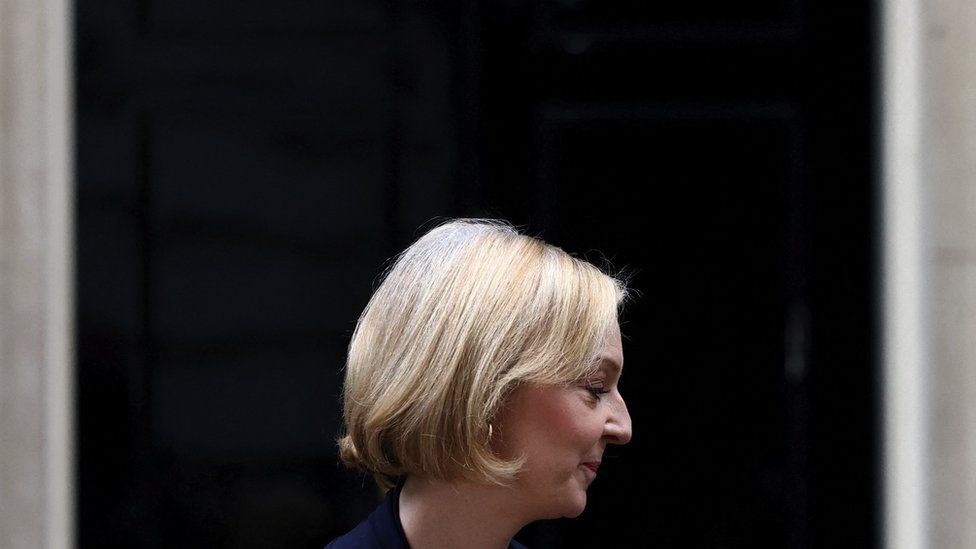ARTICLE AD BOX
 Image source, Reuters
Image source, Reuters
Despite making history and spending only 45 days in the job before resigning, Liz Truss is set to be offered the same package all former residents of No 10 have received.
But what are the perks she could get?
Public allowance
All former prime ministers are able to claim the Public Duty Costs Allowance (PDCA), currently set at a maximum of £115,000 per year.
The payment was introduced to meet the cost of continuing public duties after someone leaves Downing Street.
This can include office costs, salaries for staff, or travel to events where they are appearing in their capacity as an ex-prime minister.
John Major, Tony Blair, Gordon Brown, David Cameron and Theresa May have all claimed at least part of the allowance. It is not yet known whether Boris Johnson has made a claim, as this year's figures are yet to be published.
Former holders of the office have not always claimed the full amount.
There is also a severance payment, which amounts to a one-off payment of 25% of the annual salary for the post that ministers have left. In the case of prime ministers, it is about £19,000 (25% of the PM's £79,000 annual salary).
But if a former PM returns to a ministerial role within three weeks (or six weeks following the dissolution of Parliament for an election), they are not entitled to it.
Another role?
And what about getting a new job? Former ministers are meant to seek advice from the Advisory Committee on Business Appointments - more commonly known as Acoba - on any job offers in the first two years after leaving Westminster.
The committee looks at whether the role could be seen as a "reward" for any favourable decisions they may have made while in power - or if it gives the employer any sort of advantage.
But Acoba's power is limited - it cannot impose fines or issue any other sanctions if someone ignores its advice.
Pension
Holders of three so-called Great Offices of State, namely prime minister, speaker of the Commons and Lord Chancellor, are no longer provided with a pension of half their final salary on leaving office, regardless of length of service.
Instead, they now join all ministers in the Ministerial Pension Scheme, a contributory defined-benefit scheme part of the Parliamentary Contributory Pension Fund.
Ms Truss first became a minister in 2012.
Security
For obvious reasons, we don't know a huge amount about the security operation that could be put in place for Ms Truss.
But previous prime ministers are known to have continued to receive security after leaving office.
Former PMs are also entitled to a chauffer-driven government car for protection. The cost of such protection is also unclear.
MP benefits
If a prime minister is still an MP, they are entitled to their salary from doing that role. Being prime minister gives you get an extra salary on top of that wage.
As of 1 April 2022, the average salary of an MP was £84,144.
Politicians are also able to claim expenses to cover the costs of running an office, employing staff, having somewhere to live in London or their constituency, and travelling between Parliament and their constituency.
On top of these expenses, MPs also get a limited sum per year for postage-paid envelopes and House of Commons stationery. Each member of the House of Commons gets £9,000 for this.
Outside of politics, ministers have gone on to have more lucrative careers including:
- Former deputy prime minister Sir Nick Clegg took a recent promotion at Facebook's Meta company, reportedly bagging a £10m bonus
- Former chancellor George Osborne. known for having an eclectic portfolio of jobs since leaving office, now works for investment bank Robey Warshaw. Shortly before leaving parliament, he took up a one-day-a-week role at a different investment management firm reportedly paying £650,000 a year
- Former foreign secretary David Miliband, who left politics after losing the Labour leadership election to his brother Ed, reportedly earns £768,000 as head of the International Rescue Committee

 2 years ago
24
2 years ago
24








 English (US) ·
English (US) ·